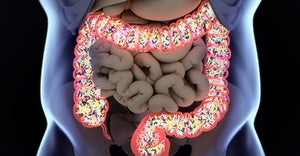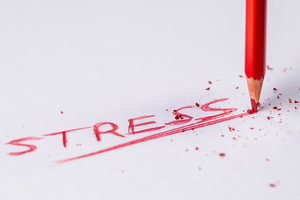Depression – not all in your head

Have you been diagnosed with depression because of one or more of the following symptoms?
- Suffering a depressed mood most of the day nearly every day
- Markedly diminished interest in activities
- Significant weight loss (when not dieting) or weight gain
- Sleeping more than usual or having difficulty sleeping
- Feeling fatigued nearly every day
- Feeling worthless or inappropriately guilty
- Having difficulty concentrating or making decisions
- Thinking about death or attempting suicide
Believe it or not, the head is attached to the body
It’s important to consider what was not included in your hypothetical initial psychiatric evaluation. Psychiatrists do not always ask you about various medical illnesses and physical symptoms that you, your siblings, your parents, and your grandparents currently have or have had in the past. Rarely would a psychiatrist listen to your heart, monitor your pulse rate, examine your eyes, look at your skin, or otherwise try to determine if any of your physical symptoms might be related to your depressed mood, lack of energy, or insomnia. Your hypothetical evaluation did not include a discussion of what you typically eat or which chemicals you have been exposed to, and there was no order for laboratory work to check your nutritional status and hormone levels or measure the environmental toxins that may have accumulated in your body. Additionally, there was no attempt to discover whether allergies you may or may not be aware of could be influencing your mood.
These omissions clearly demonstrate that psychiatry does not operate on the principle that what occurs in the body affects what occurs in the mind. To those in the psychiatric profession, the brain is the brain and the body is the body; they are two separate and very distinct entities. This separation of brain and body often prevents physicians and mental health professionals from discovering the real cause of depression. Thus, psychiatrists make treatment decisions in the dark, prescribing one medicine after another, hoping that one, or some combination of more than one, will work. Most psychiatrists rely on their personal favorites. Some favor older medicines for depression, such as Zoloft and Prozac, while others lean toward newer ones, such as Cymbalta and Remeron. Either way, patients usually undergo courses of multiple psychiatric medications and are typically prescribed two or more antidepressants to take simultaneously, in addition to medication for sleep and, perhaps, anxiety.
A recent study published in the Archives of General Psychiatry confirmed this trend, finding that a staggering 59.8 percent of visits to office-based psychiatrists resulted in two or more psychotropic medication prescriptions. About one third of the office visits resulted in three or more prescriptions. And if the initial prescriptions didn’t solve the problem, new ones were offered.
Why are psychiatrists the only doctors that don’t run tests before they diagnose and prescribe?
Psychiatrists do not ask a lot of questions. They are trained to use the prescription pad. They prescribe medicines without understanding the causes of the disorders they seek to treat…more like improve.
This information was taken from the following book with permission from Dr. James Greenblatt: The Breakthrough Depression Solution by James M. Greenblatt , M.D., a dually certified child and adult psychiatrist. Dr. Greenblatt is the Founder and Medical Director of Comprehensive Psychiatric Resources, an integrative psychiatric practice in Boston.
- David Brady







Comments 0